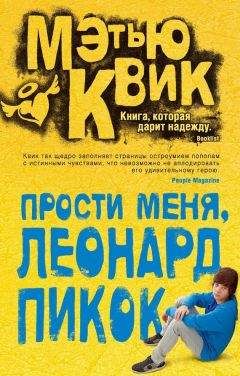Stuart Kaminsky - The Dog Who Bit a Policeman
“You are already devoted to that, aren’t you?”
“No,” said Rostnikov, unable to resist a slice of the fresh pizza, which seemed to be covered with mushrooms. Rostnikov had a passion for mushrooms, peaches, and his wife’s cooking. “Your destruction is the province of the organized-gang division of the Ministry of the Interior. I have been given an assignment. I intend to fulfill that assignment.”
“Tell me, Inspector,” said Shatalov, handing a slice of pizza to the big man with the bad complexion and taking one for himself.
“How would you like to make a great deal of money?”
“I think not,” said Rostnikov. “It would change lifelong habits and disorient me. It might also, depending on the source of such sums, result in compromising me in the performance of my duties, duties that form the meaning of my life as a police officer.”
“Impressive,” said Shatalov. “Did you just think up that little speech?”
“Read it in an American novel, Ed McBain. It is a paraphrase but essentially accurate.”
“Ed McBain?”
“I will be happy to let you borrow a copy of one of his books on the condition that you kill no one for a week. Do you read English?”
“A bit,” said Shatalov with a mouthful of pizza, a string of cheese dangling from the corner of his mouth.
“It will be worth the effort. You agree to my conditions?”
Shatalov wiped the dangling cheese from his mouth, shrugged, and then nodded.
“If none of my people is attacked, I’ll consider your seven-day truce,” he said, putting down his napkin. “I’ll do better. I’ll do nothing for two weeks unless the one-eyed son-of-a-syphilitic-goat does something first.”
It was Rostnikov’s turn to nod.
“You want to hear a joke?” asked Shatalov, his mouth full of pizza.
“I can think of nothing I would like more,” said Rostnikov.
“Your wife is a Jew. It will help you to appreciate it more.”
Rostnikov said nothing. Shatalov, though he acted the fool, had subtly informed the inspector that he knew a great deal about him.
“Well,” said Shatalov. “There were these two cows about to be slaughtered kosher. The first cow asked the other one, ‘What’s cooking?’ The second cow said, ‘Don’t ask.’ ”
Shatalov laughed again. So did the big man with the bad complexion. Rostnikov did not laugh. He stood with some difficulty, pushing back the chair and working his artificial leg under him.
“You want to take the rest of this pizza?” Shatalov said. “We’ve had enough.”
“Why not?” said Rostnikov after a very brief pause. “I do not think my superior would consider half a large mushroom pizza a compromise of my principles.”
Shatalov laughed and pointed at the detective. The restaurant went silent. “I have a last question,” said the Chechin. “Did the Tatar hen dipped in sheep shit call me ‘Irving’?”
“I would prefer not to recall,” said Rostnikov.
“I think I’ll be seeing you soon,” said Shatalov, motioning to the waiting waiter, who hurried over and packaged the remaining half-pizza for the rumpled man with the bad leg who looked like a refrigerator.
And so it was that a weary Rostnikov entered his apartment on Krasikov Street with a treat for two little girls, their grandmother, and Sarah Rostnikov.
“Why are you not in bed?” he asked, handing the box to Laura, the elder.
Both children were wearing nightshirts.
“Grandmother said we could stay up and watch you picking up the heavy things.”
“We like to watch,” said the younger girl.
“I know,” said Rostnikov, taking off his jacket and hanging it on the rack near the front door.
Sarah got up and came to him, touching his face and looking at his eyes.
“Hungry?” she asked.
He shook his head. “Maybe later,” he said. “Have a piece of pizza.” The girls took the prize to their grandmother, who sat at the small table near the window.
“I’ve eaten,” said Sarah.
“Are you all right today?” he asked, very softly, examining her face.
Sarah Rostnikov had undergone surgery to remove a benign growth from her brain more than two years ago. Since the operation, she had periods of dizziness and took pills her cousin, Leon the doctor, gave her. There were days when she could not go to work, and only the fact that Porfiry Petrovich was an important chief inspector saved her job.
“I’m fine,” she said with a smile.
She had gained weight before her operation but had steadily grown more trim since. She looked, with her smooth pale skin and red hair, much as she had looked as a young woman. Illness had not aged her. On the contrary, it had, ironically, made her look younger.
There were no messages, no neighbors with toilet or sink problems, no urgent calls to contact his office.
The girls sat next to each other on the floor eating pizza while Rostnikov changed into his gray sweat suit, turned on a cassette of the American rock group Creedence Clearwater Revival. He had discovered the tape by accident, buying it for next to nothing at an outdoor market. Now it was one of his favorites. If he ever went to America, he would try to meet Ed McBain and John Fogarty, who sang and wrote most of the Creedence Clearwater songs. “Bad Moon Rising” began at the same moment Porfiry Petrovich lay back on the narrow bench he had pulled out from the cabinet against the wall. He lined up his weights and began. The women at the table talked softly, and the two little girls ate and watched the serious ritual that they knew was designed to make one stronger, only Rostnikov was already the strongest man in the world, they were certain. They had concluded some weeks ago that he simply enjoyed doing this, which struck them both as very strange, given the pain and grunting and sweat. Adults were very strange and unpredictable creatures.
Chapter Seven
That night in Moscow was a relatively quiet one.
A former farmer from a collective in Georgia, Anatoli Dudniki, weaved his way drunkenly down the middle of Kadashevskaya Prospekt, announcing to the hurtling taxis and cars that it was his sixty-fifth birthday. One driver, who had taken a few drinks himself, screeched to a halt directly in front of Anatoli, who leaned forward over the hood and laughed.
“Like a movie,” Anatoli said. “My life is like a movie now. You hear that?”
The man in the car opened his window and shouted, “Get out of the street, you drunken old bum, before you get killed.”
“You mean,” said Anatoli, none too steady on his feet, “my head could be run over like a melon, a plum, a cabbage, a grape, something? Squish, skwush?”
The man in the car closed his window and drove on.
Anatoli made it to the curb and sat down. A few cars passed but there were no pedestrians. There was a feeling of rain in the air as there had been all day. There was no moon. Anatoli had learned to recognize the coming of rain from his years on that pitiful collective farm where his now-dead wife had learned two hundred ways to prepare potatoes. Oddly enough, Anatoli still loved potatoes, and when others on the collective had complained at the diet, he had nodded in agreement though he did not agree.
“I love potatoes,” he shouted. “You hear that? I love them to little pieces. I could cry over them. I wish I had two potatoes now.
You know what I would do? I would eat one and give one to someone else. That’s the kind of man I am. That’s the kind of man I am.”
Now Anatoli worked in a bar, which was where he was coming from. He cleaned up after closing-sweeping, mopping, tending to the puke in the bathrooms, the sanitary napkins that blocked the toilets in the women’s room, the stuff that stuck to the floor and to the small bandstand. The pay was poor but he got to work alone and drink as much as he wanted to when he finished his cleanup each night. The management never checked the stock. Anatoli drank only the best.
The alcohol compensated for the dirty job, and he could, because he came at closing time, avoid the loud music from the small band trying to sound like Americans, and avoid the young people in stupid crazy clothes who did something they called dancing and laughed at nothing.
“They laugh at nothing,” Anatoli, sitting on the curb, said to no one. “At nothing. Not that there is anything to laugh at if you are not rich.”
Anatoli shook his head. A little drink would be nice, but Anatoli knew better than to ever remove a bottle from the Albuquerque Bar. And so he sat, shoulders down, a huge burp and sigh escaping from him. He should go home, crawl into the narrow bed in the closet in his daughter and son-in-law’s apartment, but he wasn’t quite sure where the apartment was. Things seemed to be turned this way and that tonight. It had always been difficult for Anatoli, but since the revolution had ended and the street names had been changed, it had become worse.
He shifted his right foot, which was growing stiff, and kicked something hard, something in the street next to the curb. The streetlights were dim so Anatoli leaned over to look at the object.
“What’s this? What’s this?” he said, reaching over and picking up the object. “A gun. A weapon. A thing that shoots.”
He held the gun in his hand. It was heavy. He had no idea what kind of gun it was or even, with certainty, that it was real.
“I found a plotka, a gun,” he said aloud. “A weapon. Is this a thing or is this a thing? I could shoot it. I could sell it.”
Anatoli looked at the black pistol in his hand and held it out.
He had never held a gun in his hand. He pulled the trigger. The gun fired and sent him backward. He hit his head on the sidewalk and sat up quickly, at least as quickly as he could with the aid of gawky elbows and arthritic fingers.
He looked across the street. The gun had made a loud noise and the breaking of glass in a window across the street had created an almost musical follow-up.
“It’s a real gun,” Anatoli said, bracing himself with his left hand and firing again with his right hand.
This time the bullet hit brick or concrete and Anatoli saw a spark of light when it struck.
“I think I should get up and get the hell out of here before I am in big trouble,” he said, still carrying on his conversation with the empty street. “I am a cowboy. I am a cowboy with a gun. All I need is a horse and one of those hats. I am going home.”
The problem was that getting up from the curb was now a major chore that he could not accomplish. Oh, he was capable, but Moscow would not cooperate. It kept swaying. He placed the gun in his lap and began singing. The song he sang was “Baby Face.”
Anatoli didn’t know it was an American song. He only knew the Russian words.
“You got the cutest little baby face,” he bellowed hoarsely.
Across the street, three buildings down, Misha Vantolinkov had had enough. He had been awakened by gunfire on his street before.
He had been awakened by gangs of kids shouting obscenities, but the loud croaking of the drunken Anatoli got to him. Besides, the drunk had the words to the song wrong.
Misha, who had to get up at six to get to his job at the reception desk of the Space Museum, turned on the lights and picked up his major luxury, the telephone. He called the police, giving the location but not his name, told them a lunatic drunk was shooting a gun in the street, and then he hung up.
Anatoli Dudniki was singing even more loudly, “I’m up in the sky when you give me a hug,” when Misha got back in bed and covered his head with his pillow.
Ten minutes later a patrol car with two young policemen in it pulled up at the curb. The policemen got out, guns in hand, and ordered Anatoli to stop singing and put down the gun.
Anatoli complied and grinned, showing his few remaining teeth and a look of gratitude.
“I’m not at home,” Anatoli said as he put the gun in the street.
“I have a name, a medal, a daughter, a bed. That is where I would like you to take me, comrades. Oh, I forgot, no more ‘comrades.’
Citizen policemen. I am at your mercy. Get me home.”
He staggered toward the policemen and fell into the arms of the younger one, almost knocking him over.
Eleven minutes beyond that, Anatoli was in a small damp cell in the nearest police lockup. The lockup was located next door to a paper-clip factory whose metal cutting machines throbbed all night and all day.
“This,” he announced with confidence, “is not my bed. I want my bed. This is now a free country. I am a citizen.”
“And,” said the policeman, standing over him as Anatoli sat,
“you have murdered a woman. One of those shots went through a window and killed a young mother.”
“Killed?” said Anatoli, looking at the policeman.
Seconds later, he was asleep.
Raisa Munyakinova sat in the only reasonably comfortable chair in her minuscule apartment. They called it an apartment, but it was just a room. It was enough for her. She had work. She had a place to live. She would survive losing track of the days, having to carefully write her work schedule on the back of a flyer for Canadian cereal and place it under a glass on her tiny table.
The detective who looked like a ghost had not frightened her. It was not fear that now kept her awake. It was her decision to identify the man who had been with Valentin Lashkovich before he was murdered.
In a few hours, with the sky full dark, Raisa would get dressed and go to work and when she was finished take a bus to Petrovka to meet the ghost detective. She would look at photographs. She knew the face of the man she would be looking for. Would she have the strength to identify him? Or should she simply say, “He is not here,” and go on with the life she had chosen and which had chosen her?
She had just returned from her night of work. She was tired, so tired that the idea of just rising from the chair to get to her bed was too much effort.
In the darkness, her head turned to the curtain in the corner. Behind the curtain was a cardboard box. It was not a particularly large box. From time to time she took the box out and removed items and memories, touched and examined them and put them back. It was her past and it was painful, but compelling. Whenever she went through the contents of the box, she smiled and wept.
She got up wearily, turned on the small sixty-watt table light and moved to the curtain. The meaning of her life was beyond that curtain in a cardboard box. She wondered how many others in Moscow kept their meaning in boxes behind the curtains.
Although Bronson was a dog, that did not mean he had no thoughts. On the contrary, he had many thoughts, but they were fleeting and he had almost no control over them.
Even now, as he lay in his large metal cage in the darkness, with only the dim night-light through the single small slit of a window, thoughts came racing through the head of the huge dark animal.
An image of a human bringing something heavy down on his back stirred the dog, but it was instantly gone, forgotten till the next time. A spark of a memory of looking into the eyes of another dog whose neck he had held with his best bloody grip rolled by on a wave. He felt the death of that other dog and it became part of the wave of death of many dogs. And that too passed.




